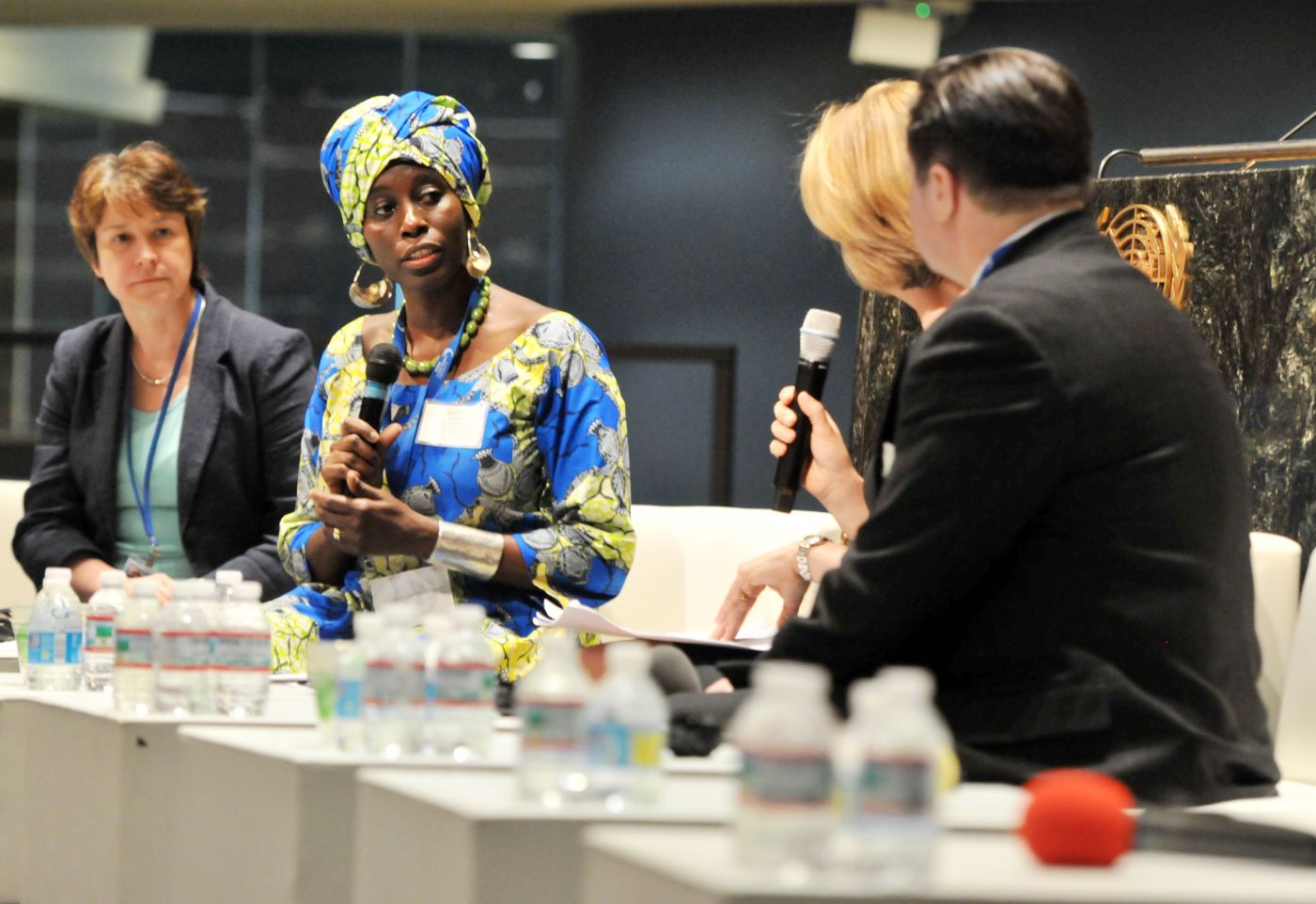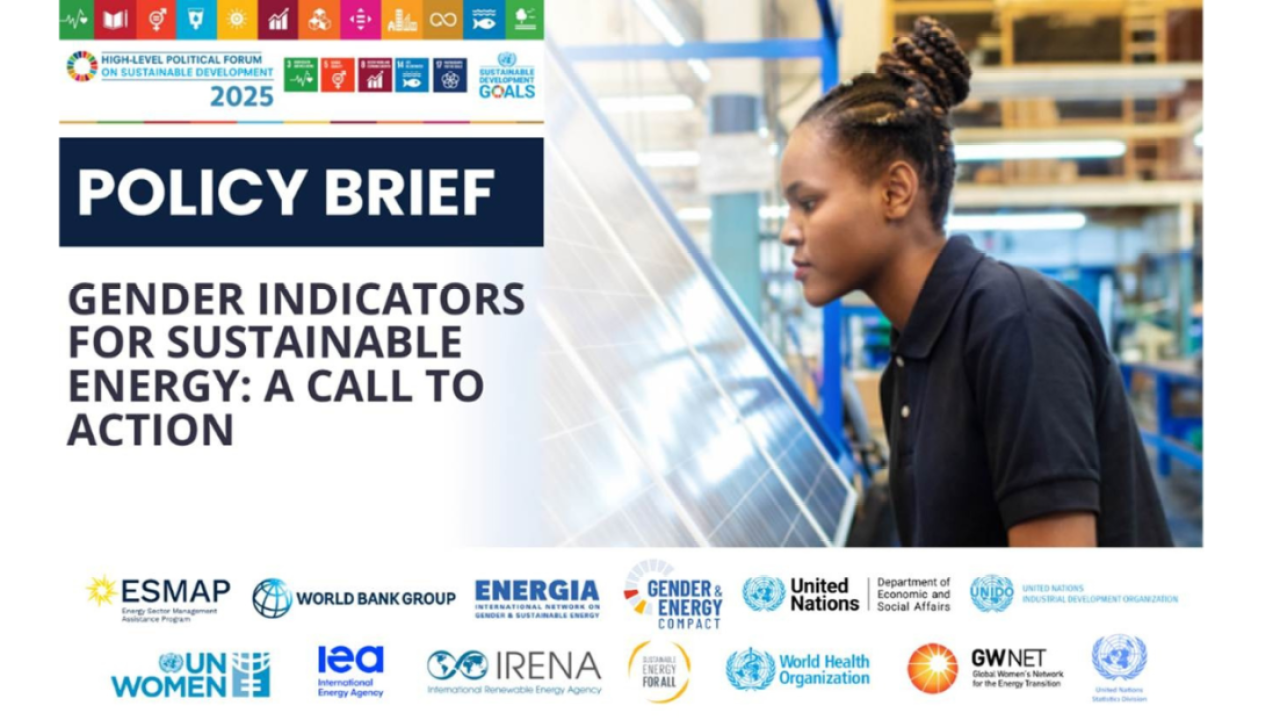At the 2015 SE4ALL Forum this week, ENERGIA’s International Coordinator, Sheila Oparaocha took to the stage to participate in an important discussion on Energy, Women & Children’s Health. The group of speakers – which represented the private sector, governments of concerned nations and other international NGO’s participating in relevant projects – discussed the issues facing women & children without access to clean, sustainable energy.
The takeaways from the session rang loud and clear. Empowering women with clean, sustainable energy helps advance all of the Sustainable Development Goals [SDGs] and that more women stakeholders need to be integrated into the sustainable energy access conversation. As Sally Gear Head, the Head of the Sustainable Energy Team for the Department for International Development of the United Kingdom, said in her remarks, “Women are the victims of some of these problems but absolutely they are the solution as well.”
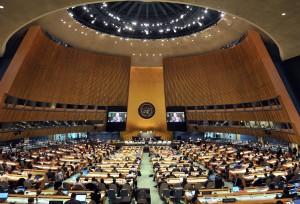
In developing communities around the world, women take on a large share of the energy responsibilities of their households. They are those tasked with gathering firewood and other fuels for cooking, tending the inefficient fires needed for cooking food, gathering water and managing their family’s energy resources. Just the task of gathering fuel for cooking and making meals for their families can take up to 8 hours of their day. As Radha Muthiah of the Global Alliance for Clean Cookstoves told us during the forum, with these time-intensive responsibilities women have no time to take advantage of the growing number of opportunities that exist for them in their communities. This is not to mention the fact that the burning of solid fuels in homes around the world causes 4.3 million deaths every year – the vast majority of which are women and children.
Ms. Muthiah, who spoke on the panel above, noted that we aren’t waiting for the technological solutions to this problem to be invented. “It is imperative that we address this problem with the multitude of solutions that are available, so women can become an active part of their communities in the way they choose to.” The panel agreed that bringing women into the conversation could help advance change quickly and with their interests in mind.
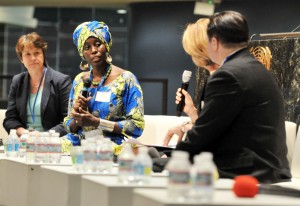 In the latter half of the panel the conversation turned to another health impact that lack of clean, sustainable energy has on women and children in the developing world – in the healthcare sector.
In the latter half of the panel the conversation turned to another health impact that lack of clean, sustainable energy has on women and children in the developing world – in the healthcare sector.
“In the minute I’ve been talking, 21 newborn children will have died because they don’t have access to oxygen. Not because they don’t have oxygen equipment, it’s because those machines aren’t optimized for low resources and they need a lot of power. If the power is intermittent the machine will stop,” explained Maurizio Vecchione the Senior Vice President of Global Good and Research for Intellectual Ventures during the panel. There is a lack of energy for lighting, no power for refrigeration of drug therapies and no electricity to power the energy intensive devices developed for markets with electrical grids.
Mr. Vecchione and the other panelists discussed the need for the reinvention of refrigerators and medical devices to run more efficiently on less power as well as the need for solar panel installations to provide reliable energy for light.
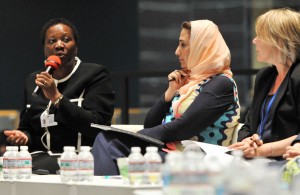 Her Excellency Irene Muloni, Uganda’s Minister for Energy and Minerals said that her country is currently focusing on electrifying hospitals and medical centers in order to stem some of these health issues. She noted that her government wants, “to ensure that every health center in the rural areas has at least a basic energy system which is clean, solar energy.”
Her Excellency Irene Muloni, Uganda’s Minister for Energy and Minerals said that her country is currently focusing on electrifying hospitals and medical centers in order to stem some of these health issues. She noted that her government wants, “to ensure that every health center in the rural areas has at least a basic energy system which is clean, solar energy.”
These problems are layered and have complicated effects, but many of the solutions exist for implementation. It is a matter of the global community coming together to bring change to developing communities. Ms. Oparaocha noted the need to alter the narrative – to change the dialogue to focus on the human impact of lack of energy access. ““We need 4.5 billion [USD] annually if we are going to achieve universal to access to cooking energy by 2030. In spite of the excellent achievements & efforts of this community under the umbrella of the global alliance, we have only raised 50 million in 5 years”
It’s time to join together to close the gap and reduce the negative impact that lack of energy access has on women and children globally.
Watch the session above and learn more at www.SE4ALL.org


